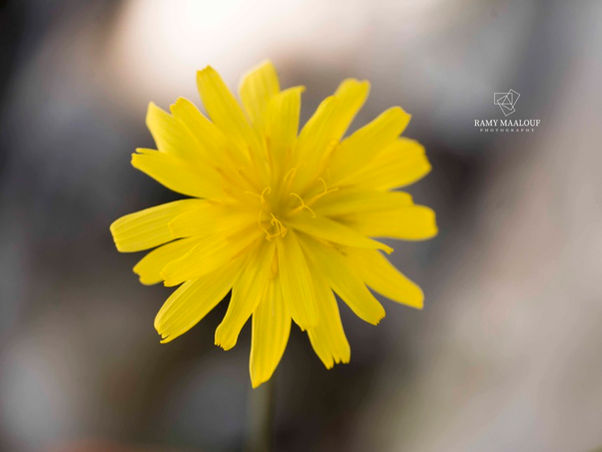Family |
Asteraceae
Crepis libanotica
J.Thiébaut
Leb. Syr. Tur.
Crepis libanotica J.Thiébaut
≡ Crepis reuteriana var. alpina Boiss.
≡ Crepis reuteriana Boiss. subsp. eigiana Babcock
(First published in Bull. Soc. Bot. France 84: 699, 1938; treated in Nouvelle Flore du Liban et de la Syrie, vol. 3, p. 540; Pl. CCCXLVII nº 1–2; 1983)
• Life-form & habit: Perennial, 30–80 cm tall, with a short rhizome producing numerous fibrous roots. Stems erect, branched in a loose corymbose-paniculate manner, indumentum densely glandular-pubescent.
• Leaves: Basal leaves lyrate-runcinate, segments oblong-triangular, acute, often entire; terminal segment larger, triangular. Surfaces pubescent, hairs often glandular. Cauline leaves 1–2, linear-lanceolate, entire.
• Inflorescence & flowers: Capitula medium-sized, 10–15 mm, on elongated, densely glandular peduncles. Involucre cylindrical-campanulate; outer bracts triangular-lanceolate, short, spreading; inner bracts linear-lanceolate, erect, densely glandular-pubescent, enclosing marginal achenes in fruit. Ligules yellow, concolorous.
• Fruits: Achenes 5–7 mm, cylindrical, striate, greenish-yellow, narrowing slightly at apex; style branches yellow; pappus of numerous white hairs, longer than the achene.
• Phenology: Flowers June–August.
• Habitat & elevation: Rocky mountain slopes, cedar forests, and high pastures, 1,200–2,000 m.
• Lebanese distribution: Jabal Barouk, Maasser el-Chouf, Cedars of Barouk, Jabal Kneissé, Jabal Sannine, Tannourine, Hasroun, Dimane, Ehden, Makmel, Cedars of Hadeth, and Mount Hermon.
• Syrian distribution: Anti-Lebanon range and Mount Hermon, including Qasyoun, Yabroud, Tala’at Moussa, and high plateaus of the Anti-Lebanon.
• Native range: Lebanon–Syria, Turkey (POWO).
⚠️ Diagnostic note: Distinguished by its densely glandular-pubescent peduncles and involucre, yellow style branches, and longer greenish achenes (5–7 mm). In contrast, C. reuteriana subsp. reuteriana has glabrous or sparsely hairy (non-glandular) involucres, green style branches, and shorter reddish achenes (4–5 mm).








